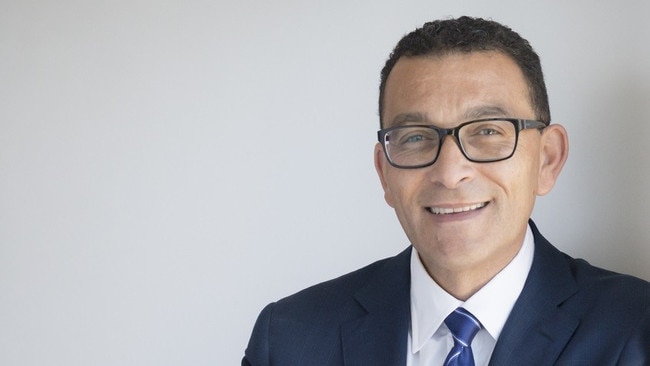Bupa report calls for health insurance to be a ‘politician free’ zone with APRA determining premium rises
With just weeks until the federal election, Bupa boss Hisham El-Ansary has revealed his reform wishlist, and it starts at the top.

Australia’s federal election presents a “huge opportunity” to reform the private health system, including stripping the health minister of determining premium increases in an effort to depoliticise the sector and better reflect healthcare costs, a Bupa report says.
Bupa Asia Pacific executive Hisham El-Ansary has suggested a raft of measures, such as allowing health insurers greater freedom to fund services that better match their members’ needs, as both major parties struggle to gain traction on their election health promises.
“Australia’s universal healthcare system, supported by private health insurance, is considered one of the best in the world, but we must ensure it continues to respond to the changing needs of health consumers,” Mr El-Ansary said.
“This can be achieved through reforms that support improved affordability, taking pressure off public waiting lists, and allow greater flexibility to fund a broader range of holistic health and wellbeing services, encouraging increased participation by young Australians.”
Health insurers including ASX-listed giants Medibank and NIB have been under pressure to return more of their “Covid savings” after the sector generated record profits of $1.8bn last year against flat claims growth from stop-start elective surgery bans.
At the same time, private hospital operators have lost tens of millions dollars from government-enforced surgery suspensions, while two years of border closures have blocked access to skilled migration, exacerbating a chronic healthcare worker shortage.
Mr El-Ansary commissioned a report from Evaluate, which outlines a path to reform to make the sector more affordable and sustainable, and it starts at the top.
The report suggests stripping the health minister of approving premium increases, given it creates “annual bad news … however modest”.
“The requirement to approve and manage premiums at the federal government level is a political constraint. And it is a particularly unproductive one, in that it tends to only ever increase criticism of the responsible minister, and consequently unduly politicise private health insurance,” the report states.
“It should be noted here that one consequence of the current market pricing arrangements is substantial annual downgrading after the annual premium increments are approved, which means that the actual mean rise will be less than the announced increase.”
Instead, the report suggests the Australian Prudential Regulation Authority should determine premium increases.
“As with products such as electricity and telecommunications, or price-capped products such as third-party motor vehicle insurance, this would mean the most competent regulator — in this case APRA — would set premium variations according to a set of rules, unencumbered by shorter-term political considerations.
“Importantly, it would align the public policy goals of insurance affordability and prudential regulation, rather than placing them in competition with each other.”
Health has formed a key plank in Labor’s campaign, with leader Anthony Albanese vowing to “strengthen Medicare”. Mr Albanese also said Labor would trial 50 urgent care clinics that would run seven days a week from 8am to 10pm and offer bulk-billed treatments for non-life threatening conditions at a cost of $135m over four years.
Labor’s plan sparked a rebuke from Australian Medical Association president Omar Khorshid who said his organisation was “unconvinced” by the plan and “these centres will do little to relieve the hospital logjam”.
Prime Minister Scott Morrison meanwhile has tapped Anne Ruston to replace Greg Hunt as health minister if the coalition is re-elected.
Other findings in the Evaluate report include: reducing red tape so that private health insurance can cover more preventive and out of hospital care that reflect modern care delivery and the increase in chronic illness; incentivising best practice care and focusing on outcomes for patients; and removing waste and inefficiencies that drive unnecessary cost for consumers.
It also suggests providing private health insurers with more flexibility in how they discount premiums, so they can more meaningfully respond to customer needs and individual circumstances, and “empowering consumers to better navigate, understand and control their own health care through improved reporting, transparency and data sharing”.
Health insurers have been frequently criticised for seeking to have more influence over clinical decisions, with doctor and hospital groups warning of a lurch towards US-style managed care. But the Evaluate report says managed care in Australia would not work.
“Managed care as it is generally practised overseas would represent an excessive rebalance between the interests of insurers and suppliers and, rather than simply addressing the problem of PHI funds being price takers, would simply up-end this and make suppliers price takers instead”.



